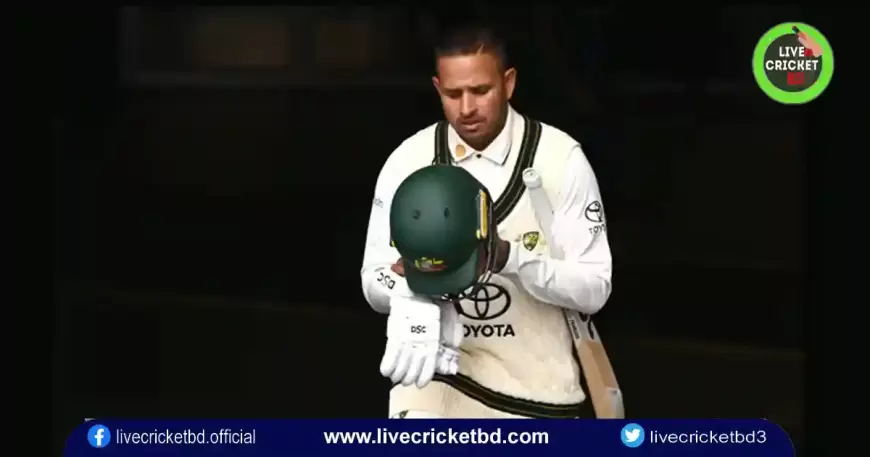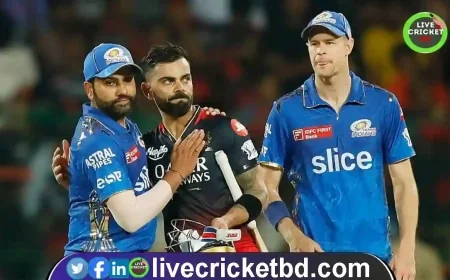cricket news by banning khawajas protest the ICC amplified its message
cricket news By banning Khawaja’s protest the ICC has boosted his message and revealed its own hypocrisy | International Cricket Council

Indeed, the International Cricket Council could not have done Usman Khawaja more favours. If the Australian opener had been allowed to take to the field for the Perth Test wearing shoes with two obscenely simple phrases about human rights written in pen on the sidewall, a few pictures would have been published and that would have been it.
Instead, they banned the move, as well as his subsequent request to decorate his bat with the peace symbol of a dove holding an olive branch. Which means the story has been in the news ever since, with millions of views for Usman Khawaja social media posts on the matter. His aim is to publicly protest the ongoing humanitarian crisis in Gaza
In fact, you might ask why he needs to wear a symbol now, when off-field events have generated more attention. But it has always been about the principle of using the stage that gives it its power, normalizing gestures of public support. Khawaja understands that doing nothing is as much a decision as doing something. Prefers silence and talking. Passivity is an action. One person's talk rarely makes a difference, but over time the collective of talk can swell. The history involving Palestine, Israel, and Gaza is terribly shaky, but that only makes the policy of peace all the more urgent.
Usman Khawaja wants the right to advance that policy in his place as a cricketer. His dove is a podium contender for innocent iconography. Marnus Labuschagne has long worn a religious eagle sticker on his bat, which is fine for the ICC as it represents personal beliefs. They may want to note that Christian ethics include the primacy and mercy of human life. Apparently this is fine in the abstract - but in applying such beliefs very specifically, say the idea that cities should not be bombed by military weapons for months at a time, the beliefs become political.
Cricketers wear black armbands or observe silence for victims of tragedies. They play fundraising games after natural disasters. But is intentional human violence ordered and legislated by the state? That's politics, it turns out. People made those decisions, executed them, had a logic. For the ICC, which is essentially an escrow company created to funnel funds between the board and broadcasters, the easiest thing to do is ignore it.
There is a particular contradiction in this antipathy it seems trite to call it irony, but what is hypocrisy if not irony in action of an inherently politicized organizer of an inherently politicized sport. National Teams National team play is by definition political. As a collection of members the ICC is governed by the disproportionate power of the Board of India, which dictates the votes of the smaller board. The Indian board is now an unofficial branch of the national government, stacked with affiliates of the Bharatiya Janata Party and hosting the recent World Cup finals at a stadium named after the current prime minister.
India and Pakistan will not visit each other due to political conflicts. Sri Lankan cricket has often been run from parliament like committee rooms. South Africa's sports minister recently sacked the corrupt cricket board. Bangladesh captain Shakib Al Hasan is contesting for the parliamentary seat. The ICC's main sponsor is Aramco, the royal oil company that drives Saudi Arabia's economic power and protects it from the consequences of its decline.
Afghanistan's women's cricket team dreams of being unaffected by politics, fleeing the country where women's sports and education are banned. Meanwhile, the Taliban-backed board has just announced that it will suspend some of its top male players from all overseas Twenty20 leagues, denying them an income as punishment for seeking flexibility in representing the national team at much lower salaries. Zimbabwean cricket has borne the authoritarian fingerprints of Robert Mugabe's henchmen for years, while Henry Olonga and Andy Flower are still admired for their black armband protests against Mugabe at the 2003 World Cup. The current ICC would declare that protest illegal.
Ultimately it is all about international cricket's glorious legacy - the concerted boycott of apartheid South Africa in the 1970s and 1980s that helped fix the regime's status as a pariah until change. If today's situation repeats itself, there is little confidence that cricket will take a holistic approach.
The BCCI could argue that it was not worth denying a potential revenue stream and losing a quality member. The ICC's chief executive, Geoff Allardyce, said that, like Afghanistan, "as a cricket board, they are operating under the laws of their country," and it is not his place to influence spending millions. out every year. And if Khawaja decided to express his opposition with a quiet, symbolic protest, he would be told: "Sorry champ. None of this allowed. Go out there and bat.
















































